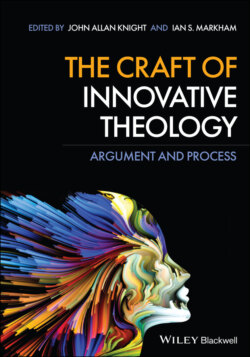Читать книгу The Craft of Innovative Theology - Группа авторов - Страница 8
1 Introduction
ОглавлениеMost professors are better at imparting content than they are at imparting research skills. Professors are good at explaining the complexities of Aquinas or the details of Kant’s categorical imperative. But they are less good at helping a student learn how to think about a new way to interpret this thinker or defend an unfashionable position. Beyond the basics, such as thinking critically and avoiding plagiarism, many professors usually don’t teach a student how to move the discipline on to a new set of questions or a new approach or a potential solution to an old problem. For the Masters’ student trying to write a thesis or a student starting on a Ph.D. dissertation, we have an old‐fashioned system of “trial and error” – you try, the professor tells you that it is wrong, and you try again. There is a need for a book that explains how to write in such a way that you advance a discipline; there is a need for a book that explains why this article is great and that it should be a model of great research writing.
This book sets out to solve this problem. We do so in two ways. First, toward the end of this introduction we set out what we take to be the basics of writing publishable research essays. Second, we offer sixteen model “research” articles. Surrounding each article is an apparatus that explains precisely why this is a model research article. We make explicit what is often implicit. We explain about the importance of the signpost, the accurate representation of positions you do not hold, the way in which objections are anticipated, why this footnote is important, and how a good piece of writing ultimately drags the reader to feel that this argument might be right even if his or her instinct is to find the argument mistaken.
Therefore, the first purpose of this book is to teach the art of writing good, creative, research‐orientated theology. Our target readers are all those trying to write a Masters’ thesis or beginning work on their doctorate. But the book is also intended to provide the basis of an “innovative theology” course. This is a course that takes a group of students through a set of issues, loosely clustered around the key themes in systematic theology, that are models of good theological writing with theses that are provocative. A professor can select certain chapters or simply work through each chapter and in so doing teach both content and the art of research writing.
We did try to make sure that the book touches a range of different approaches to the writing of innovative theology. So Pamela Jones, primarily, employs a historical approach to the theme of race in the Southern Baptist Conference. Keith Ward attends closely to the biblical text in his discussion of eschatology. Andrei Buckareff brings the rigors of analytical philosophy to the issue of hell. In addition, we were interested in writing that crosses disciplines. As a result, the engagement of science is prominent with articles on anthropology (Celia Deane‐Drummond), biological evolution (Christopher Southgate), and artificial intelligence or AI (Ian Markham). We wanted articles that connected with the dilemmas of living. Trevor Bechtel explores the issues around the eating of animals, while Kathryn Blanchard takes COVID‐19 as a case study in business ethics. We wanted some essays that exhibited an interfaith sensitivity. Therefore, Tinu Ruparell writes about religious pluralism and Cass Fisher reflects on the whole concept of Jewish theology. We wanted some texts that are very accessible – Thomas Oord eases the reader into a controversial thesis in a very gentle and readable way – and we wanted other articles to illustrate what participation in a highly technical discussion, where the scholar is completely on top of the literature and the current conversation – Leigh Vicens and John Knight met this goal perfectly. We wanted different writing styles, from those who love stories and illustrations – Martyn Percy and Trevor Bechtel – to those who appeal primarily to precise logical distinctions – Andrei Buckareff. For the teacher and the reader working through this book, the result is that you are introduced to a vast spectrum of approaches. But they all share the virtue of being great examples of provocative, innovative research writing.
